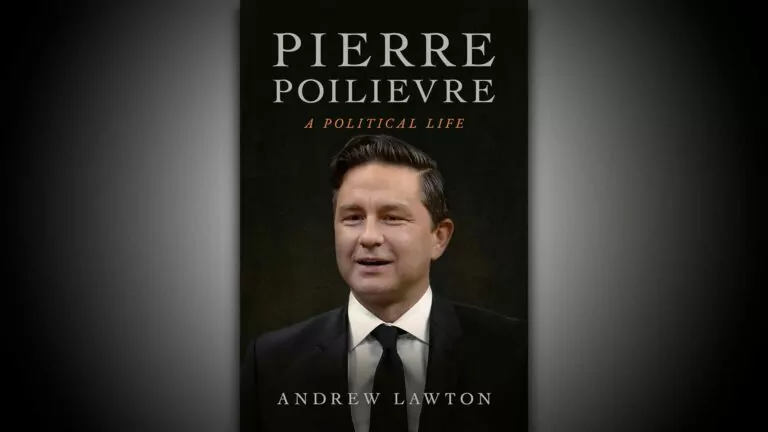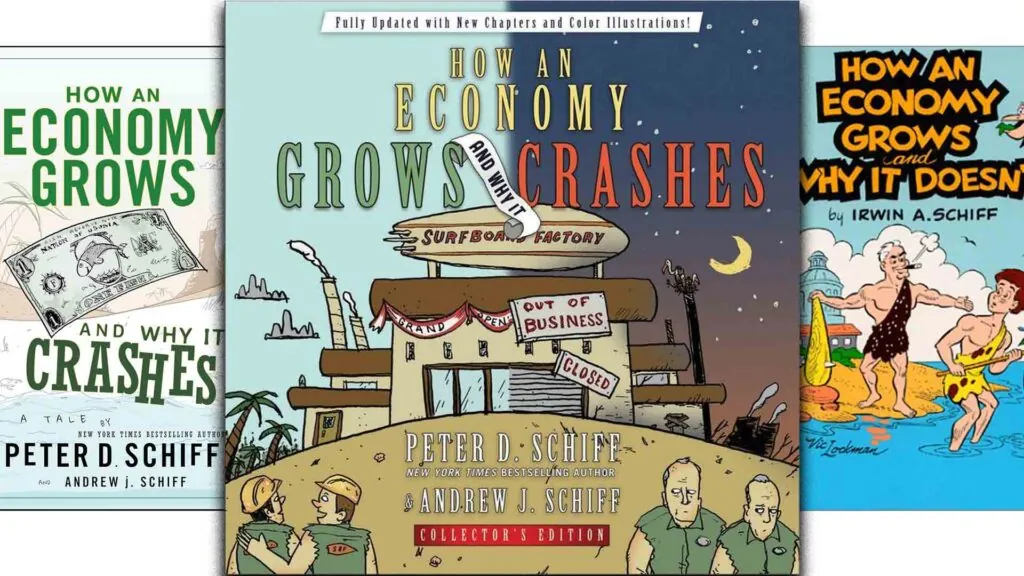Andrew Lawton’s Pierre Poilievre: A political life (2024/212 pages) is a biography of the man who might yet be the next Prime Minister of Canada. While there’s no blatant slant, the author has good reasons to like the man he is profiling. When he wrote this, Lawton was editor of True North, one of the few Canadian news sources that wasn’t being bought and paid for by the federal government, so how could Lawton not love Pierre Poilievre’s pledge to defund the CBC?
Lawton has since stepped away from reporting the news to now trying to make it. He is campaigning as a candidate for the Conservative Party of Canada in the Elgin-St. Thomas-London South riding, hoping that his own election will help put Poilievre in place as prime minister.
So this isn’t going to be a hit-job sort of biography, then. While Lawton hasn’t writing a hagiography either, his respect for Poilievre comes through. With that bias in mind, here’s a half dozen highlights from Lawton’s book that you might not have known about Pierre Poilievre.
Poilievre’s adoptive father is gay
Pierre and his biological brother were both adopted as infants by Marlene and Donald Poilievere. The couple separated when Poilievre was around twelve.
“Soon after, Donald came out as gay…[F]riends of Poilievre’s say it was never a source of difficulty for him. He has always accepted his father and has a positive relationship with him and his long-time partner.”
Why is this relevant? Because having someone close to you come out as gay or trans is uniquely impactful. That’s even true in the Church. As Jojo Ruba noted in a recent Real Talk podcast:
“Some of the Christian apologists I work with point out that almost every person that they know who grew up as a conservative bible believing Christian who changes their theology on sexuality and gender identity, do so because a family member or loved one a friend comes out as gay or trans, and then all of a sudden their theology has to change to accommodate this loved one.”
Back in 2005 and 2006 Poilievre voted against the legalization of same-sex “marriage” but has subsequently called gay “marriage” a success, so we can surmise that his views in this area are deeply held.
He read free-market economic books as a teen
As a teen Poilievre attended events put on by the BC-based free market think tank, the Fraser Institute. He also read Milton Friedman’s Capitalism and Freedom, which argues that free markets are effective, moral, and needed for political freedom. “Poilievre embraced this blend of philosophy and pragmatism…”
Poilievre has been at this for a while
When he was first elected to Parliament in 2004, Pierre was the given the title “Baby of the house” for being the youngest MP, at just 25 years old.
Pro-life ally to officially pro-choice
Poilievre has worked for and with pro-life conservatives like Stockwell Day and Andrew Scheer, and that earned him an endorsement by the Campaign Life Coalition back in 2020. But in 2021,
“Poilievre voted against a private member’s bill by Conservative MP Cathay Wagantall to ban sex-selective abortions. By the leadership debates in May 2022, Poilievre was identifying explicitly as ‘pro-choice.’”
Where he differs from a Trudeau or Carney is that he’ll allow pro-lifers to run for his party. But, as Lawton reports,
“He also told me in one interview during his leadership race that no abortion legislation would pass under his government. When I asked if he was saying he’d actively prevent a bill like that, he said it was ‘just an obvious fact’ that no bill restricting or banning abortion would pass.”
Reason to think we can “Persistent Widow” (Luke 18:1-8) him?
Poilievre is a genius at getting and using attention, and he is bold. As one of Stephen Harper’s chiefs of staff noted, Poilievre would
“…lean into being on the attack rather than leaning backwards to be on the defensive. You could always count on Pierre taking the fight to the other side rather than letting the other side take the fight to him.”
But even as Pierre does a great job standing up, he’s also declared, “I’m not interested in starting fights I can’t win.” What that’s meant is that he was slower than some to take a stand on the Freedom Convoy. And he wasn’t quick to take a stand on gender battles, but seems to have seen it as a winnable battle after Alberta Premier Danielle Smith and, more so, President Donald Trump, took the lead here. Now he’s come out saying he only knows of two genders.
This may show the way Christians can approach him. Justin Trudeau, and Liberal and NDP leaders of the past have shown a real commitment to their rebellion – Trudeau hasn’t just wanted to legalize the murder of unborn Canadian babies, he’s helped kill them overseas too. In Poilievre we can see a firm fiscal conservative, but not a moral conservative. But on that moral front, he differs from Trudeau and Carney and whoever the next NDP leader will be, in that he isn’t putting much energy into his evil. He doesn’t hate the unborn so much as he doesn’t care about them. That is to his shame – God calls on rulers to protect the vulnerable (Ps. 72:12-14) and if Poilievre does become Prime Minister, and doesn’t change his ways, he will have answer to his Maker for the millions of babies who will die under his watch.
But this disinterested stand on moral matters leaves us with an opening. He might not have initially been eager to take a stand on gender, but he wasn’t committed the other way either… and then outside pressures swayed him. So, we can pray that, like the persistent widow of Luke 18:1-8, a loud Christian voice – one that just won’t shut up until justice is done – may just get Poilievre to give in to some demands.
See an interview with the author below.
This was published in the May/June 2025 issue under the title “What kind of Prime Minister would he be? 5 things you might not have known about Pierre Poilievre.”












